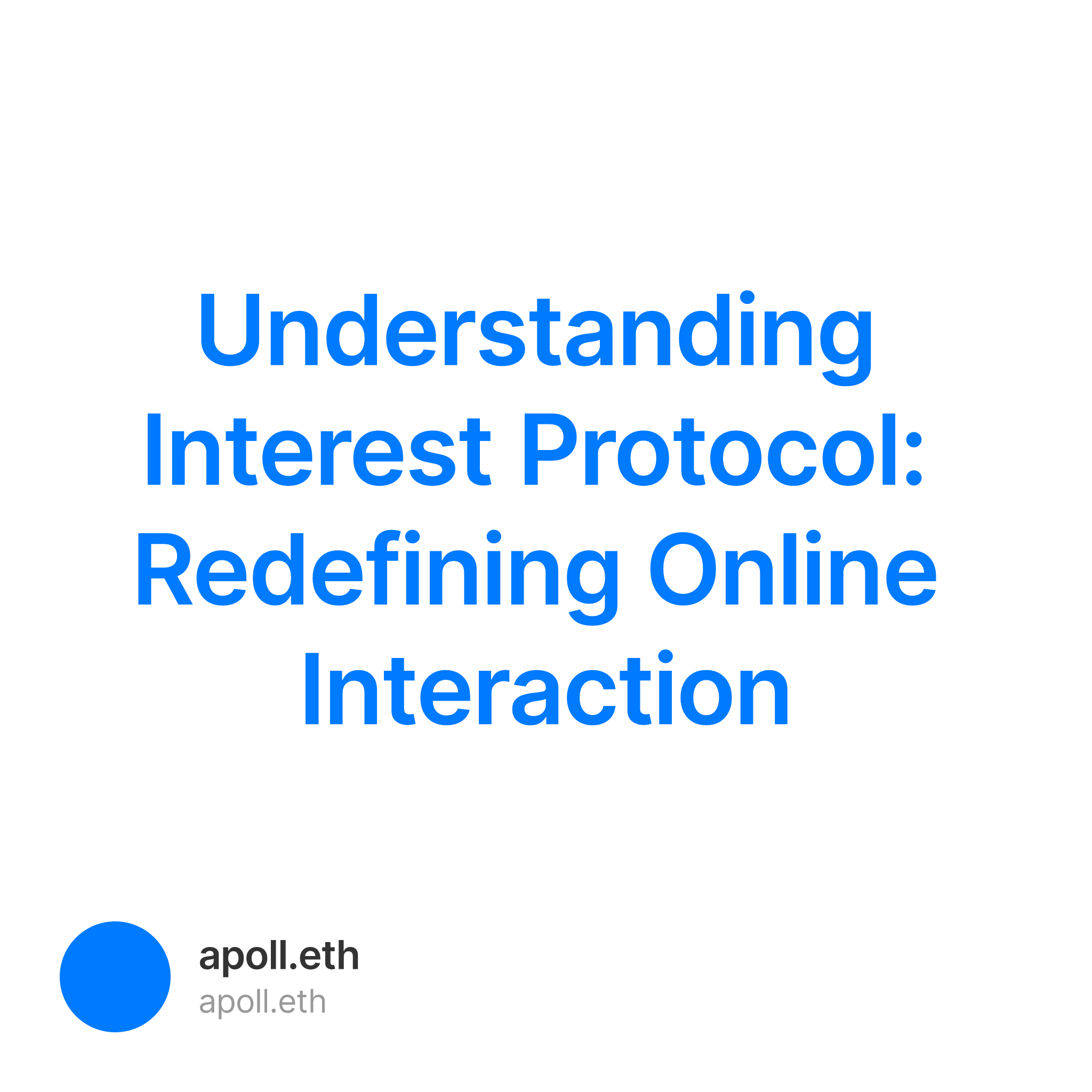Introduction
In the digital age, the way users engage with content is constantly evolving. Interest Protocol emerges as an innovative framework designed to optimize online experiences, fostering deeper connections between creators and their audiences. Insights from its Twitter account highlight a range of unique features and advantages that the protocol offers.
What is Interest Protocol?
Interest Protocol is a decentralized framework that allows users to express their interests and preferences while interacting with digital content. By leveraging blockchain technology, it ensures transparency and security, empowering users to control their data while enjoying a personalized experience.
Key Features
-
Decentralization: Unlike traditional platforms that rely on centralized databases, Interest Protocol operates on a decentralized network, reducing the risk of data breaches and giving users better control over their information.
-
User Data Ownership: Users retain ownership of their data, deciding how and when to share it. This empowerment fosters trust and enhances the overall user experience.
-
Personalized Engagement: By analyzing user interests, the protocol enables creators to tailor their content, increasing relevance and user engagement.
-
Token Incentives: The protocol may incorporate a token system that rewards users for their participation and contributions, encouraging an active community.
How Interest Protocol Works
-
Data Collection: Users voluntarily share their interests and preferences through an intuitive interface. This data is securely stored on the blockchain.
-
Content Matching: The protocol employs algorithms to match users with content that aligns with their interests, ensuring users discover relevant material and enhancing their online experience.
-
Creator Interaction: Content creators can access anonymized interest data to better understand their audience. This insight allows them to create content that resonates more deeply, fostering loyalty and community.
-
Feedback Mechanism: Users can provide feedback on content, which further refines the recommendation algorithms. This iterative process continuously improves content relevance over time.
Benefits of Interest Protocol
-
Enhanced User Experience: By focusing on user interests, the protocol significantly improves the content discovery process, making it easier for users to find what they love.
-
Empowerment: Users gain greater control over their data and how it’s used, promoting a more ethical digital environment.
-
Stronger Creator-Audience Relationships: With deeper insights into audience preferences, creators can build stronger connections, enhancing loyalty and community engagement.
-
Reduced Information Overload: By filtering out irrelevant content, the protocol helps users navigate the vast amount of online information more efficiently.
Challenges and Considerations
While Interest Protocol presents numerous advantages, it also faces challenges:
-
Adoption: Convincing users to transition from traditional platforms to a decentralized model can be difficult.
-
Data Privacy: Ensuring that user data remains private and secure is paramount, especially in a decentralized framework.
-
Technical Complexity: Implementing such a protocol requires robust technical infrastructure and user education to ensure seamless integration.
Conclusion
Interest Protocol represents a significant advancement in the way we interact with digital content. By prioritizing user interests and decentralization, it paves the way for a more ethical and personalized online experience. As the protocol continues to evolve, it holds the potential to reshape the digital landscape, creating stronger connections between users and creators.
Looking ahead, the adoption of Interest Protocol could be key to transforming how we consume and interact with online content, leading to richer and more meaningful digital experiences.
